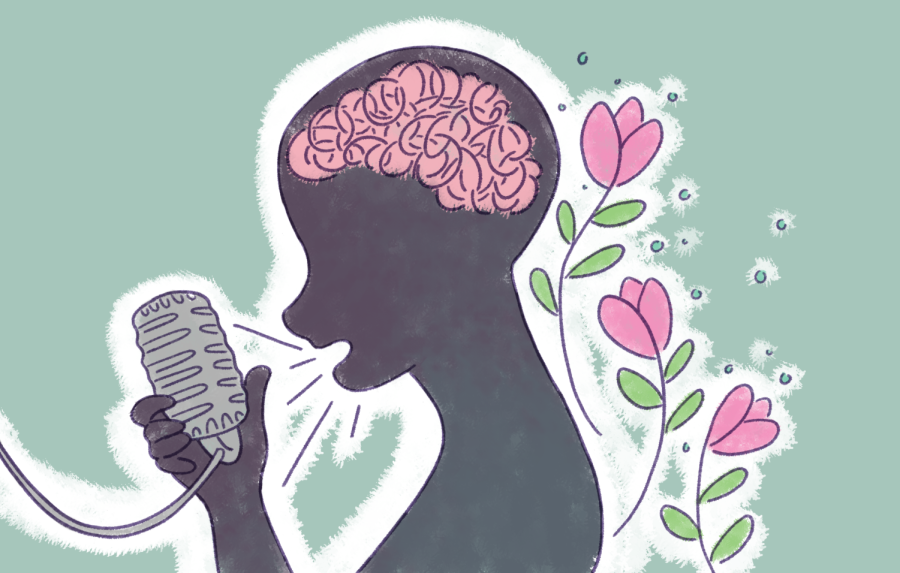‘Into the Fold’ podcast puts microphone on mental health
September 7, 2022
They called themselves the “circuit riders.”
Like the “circuit rider” clergy traveling throughout the United States, the Hogg Foundation staff and affiliates traveled throughout the state during the 1940s, visiting big cities, small towns and unincorporated regions spreading the word of mental health.
“They drove all over the state, (talking) to thousands of people about what mental health was (and) why it was important for them to understand it,” said Bill Bush, a history professor at Texas A&M San Antonio and author of “Circuit Riders for Mental Health: The Hogg Foundation in Twentieth-Century Texas.”
Around eight decades later, UT’s Hogg Foundation for Mental Health continues the circuit riders’ goals of promoting mental health through policy work, grants, events and more. One of the ways the foundation facilitates conversation is “Into the Fold: Issues in Mental Health,” a podcast hosted by foundation communications manager Ike Evans since 2014.
“(2014) was a time when mental health podcasts were more novel than they are now,” Evans said. “There was a lack of good podcasts about mental health.”
After pitching “Into the Fold: Issues in Mental Health” in the spring of 2014, eight years later, the series has published 137 episodes and counting, putting out around two episodes a month.
Its most recent episode, “Hogg and the Story of Texas,” discusses the history of the foundation’s role in mental health work in Texas. The episode includes a conversation between Hogg Foundation executive director Octavio Martinez Jr. and Bush from “New Perspectives: Mental Health in Texas,” a Bullock Museum webinar recorded in June.
Bush said discussing the foundation’s past and present reveals what needs to be done next to address mental health issues.
“The past can inform the present (and) help us understand how things got to be the way that they are now,” Bush said. “Having that historical understanding can inform how we think about today’s problems (and) solutions to those problems.”
Martinez said the podcast series allows the foundation to talk with people from various backgrounds and professions, covering a variety of topics pertaining to mental health issues, from gender-affirming care during Pride Month in June to Black maternal health during Minority Mental Health Awareness Month in July.
“Bringing in voices of those with subject-matter expertise, including those with lived experience, to weigh in on an important issue that affects a lot of folks, or maybe just a certain cohort, is a fantastic (thing) the podcast is able to do,” Martinez said.
Focusing the podcast on mental health as a systemic and social issue, Evans said he hopes the podcast prompts people to learn more about the pervasive impacts of mental health issues.
“I hope the podcast is finding people,” Evans said. “Even if they already knew a fair amount about mental health, (I hope) they get a new understanding and appreciation of all the different ways that mental health shows up for people in everyday life.”
As more people continue to discuss mental health, Evans said across disciplines, differences and divides, he feels a consensus to work together to address mental health issues.
“There’s a growing sense not just that mental health matters, but that there are fundamental aspects of our society that need (to be) addressed if we are ever to make a sizable dent in trauma, suffering (and) things that cause people to be mentally unwell,” Evans said.















